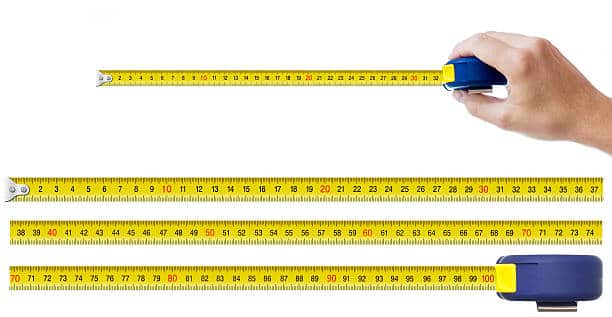Academic pressure is the stress and anxiety that students experience due to the high expectations placed on them to succeed academically. It can come from a variety of sources, including parents, teachers, peers, and society as a whole.
While a certain amount of academic pressure can be motivating, too much pressure can have a negative impact on students’ physical, mental, and emotional health. It can also lead to decreased academic performance.
This article is dedicated to this cause. Read about the effects of pressure on students.
Effects of pressure on students
Here are some of the negative effects of academic pressure on students:
Mental health problems:
Academic pressure can increase students’ risk of developing mental health problems such as anxiety, depression, and stress-related disorders.
Physical health problems:
Academic pressure can also lead to physical health problems such as headaches, stomachaches, fatigue, and sleep problems.
Academic performance:
While some students may be motivated by academic pressure, too much pressure can actually lead to decreased academic performance. This is because stress can interfere with cognitive function and make it difficult for students to learn and retain information.
Students who are feeling overwhelmed by academic pressure may withdraw from their social activities and isolate themselves from their friends and family.
Substance abuse:
Some students may turn to substance abuse as a way to cope with the stress of academic pressure.
What can be done to help students cope with academic pressure?
There are a number of things that parents, teachers, and schools can do to help students cope with academic pressure:
- Create a supportive environment: Students need to feel supported by their parents, teachers, and peers. This means providing them with encouragement, understanding, and help when they need it.
- Set realistic expectations: Parents and teachers should set realistic expectations for students and avoid placing too much pressure on them.
- Encourage students to take breaks: Students need to take breaks from their studies to relax and de-stress. This could involve spending time with friends and family, participating in extracurricular activities, or simply taking some time for themselves.
- Teach students stress management skills: Schools can teach students stress management skills such as relaxation techniques and time management strategies.
- Motivation: Social pressure can motivate students to work harder and achieve their academic goals.
- Collaboration: Social pressure can encourage students to collaborate with each other on academic projects, leading to better results.
- Competition: Social pressure can also promote healthy competition among students, motivating them to push themselves harder and achieve more.
Negative effects:
- Anxiety: Social pressure can cause anxiety in some students, making it difficult for them to concentrate and perform well academically.
- Conformity: Social pressure can also lead to conformity, meaning students may choose to do things they don’t want to do in order to fit in with their peers. This can include skipping class, cheating on tests, or engaging in risky behaviors.
- Distraction: Social pressure can also be a distraction for students, for example, leading them to spend more time texting or talking to their friends than studying.
Overall, the effects of social pressure on academic performance will depend on the individual student and the specific situation.
- Encourage students to talk to you about their feelings. Let them know that it is okay to feel anxious or stressed about academic pressure.
- Help students to develop good study habits and time management skills. This will help them to feel more in control of their academic work and reduce their anxiety levels.
- Encourage students to participate in extracurricular activities that they enjoy. This can help them to build a strong social network and give them a sense of belonging outside of the classroom.
- Talk to students about the importance of being themselves and not conforming to peer pressure. Remind them that they are valuable and worthy individuals regardless of what their peers think.
If you are concerned that your child is struggling to cope with social pressure, please talk to their teacher or another trusted adult. They can offer additional support and guidance.
Social pressure can affect high school students in a number of ways, both positive and negative.
On the positive side, it can motivate students to work harder, collaborate with their peers, and compete in a healthy way.
However, on the negative side, social pressure can also lead to anxiety, conformity, and distraction.
How does a stress impact on a student’s Behaviour?
- Increased irritability and emotional outbursts: Stressed students may be more likely to lash out at others, even for minor things.
- Difficulty concentrating and learning: Stress can interfere with cognitive function, making it difficult for students to pay attention and learn new information.
- Withdrawal from social activities: Stressed students may withdraw from their friends and family in order to focus on their schoolwork or to avoid feeling overwhelmed.
- Self-destructive behaviors: Some stressed students may turn to self-destructive behaviors such as substance abuse, eating disorders, or cutting.
It is important to note that not all students will experience the same effects of stress. Some students may be more resilient to stress than others.
However, it is important for parents, teachers, and counselors to be aware of the potential effects of stress on student behavior and to offer support to students who are struggling.
FAQs on effects of pressure on students
Anxiety and depression
Headaches, stomachaches, and fatigue
Sleep problems
Withdrawal from social activities
Difficulty concentrating and learning
Irritability and mood swings
Create a supportive and understanding home environment.
Set realistic expectations for your child’s academic performance.
Encourage your child to take breaks from their studies to relax and de-stress.
Help your child to develop good time management skills.
Be aware of the signs of stress and seek professional help if needed.
What can teachers do to help their students cope with academic pressure?
Create a positive and supportive classroom environment.
Set clear and realistic expectations for student performance.
Provide students with regular feedback and support.
Encourage students to take breaks from their work and participate in extracurricular activities.
Be aware of the signs of stress and offer support to students who are struggling.
Conclusion
Academic pressure is a reality for many students today. While a certain amount of pressure can be motivating, too much pressure can have a negative impact on students’ physical, mental, and emotional health. It can also lead to decreased academic performance.
Parents, teachers, and schools can all play a role in helping students cope with academic pressure by creating a supportive environment, setting realistic expectations, and teaching students stress management skills.
References
Recommendations
- How Many Acres in a Square Mile: Demystifying Land Measurement
- How to Measure Hips: Accurate Body Measurements
- How Many Pints Are in a Quart: Clearing Up Liquid Measurement Confusions
- How Many Ounces in a Quart Breaking Down Volume Measurements
- How Many Ounces in a Pint: Navigating Through Measurement Unit





